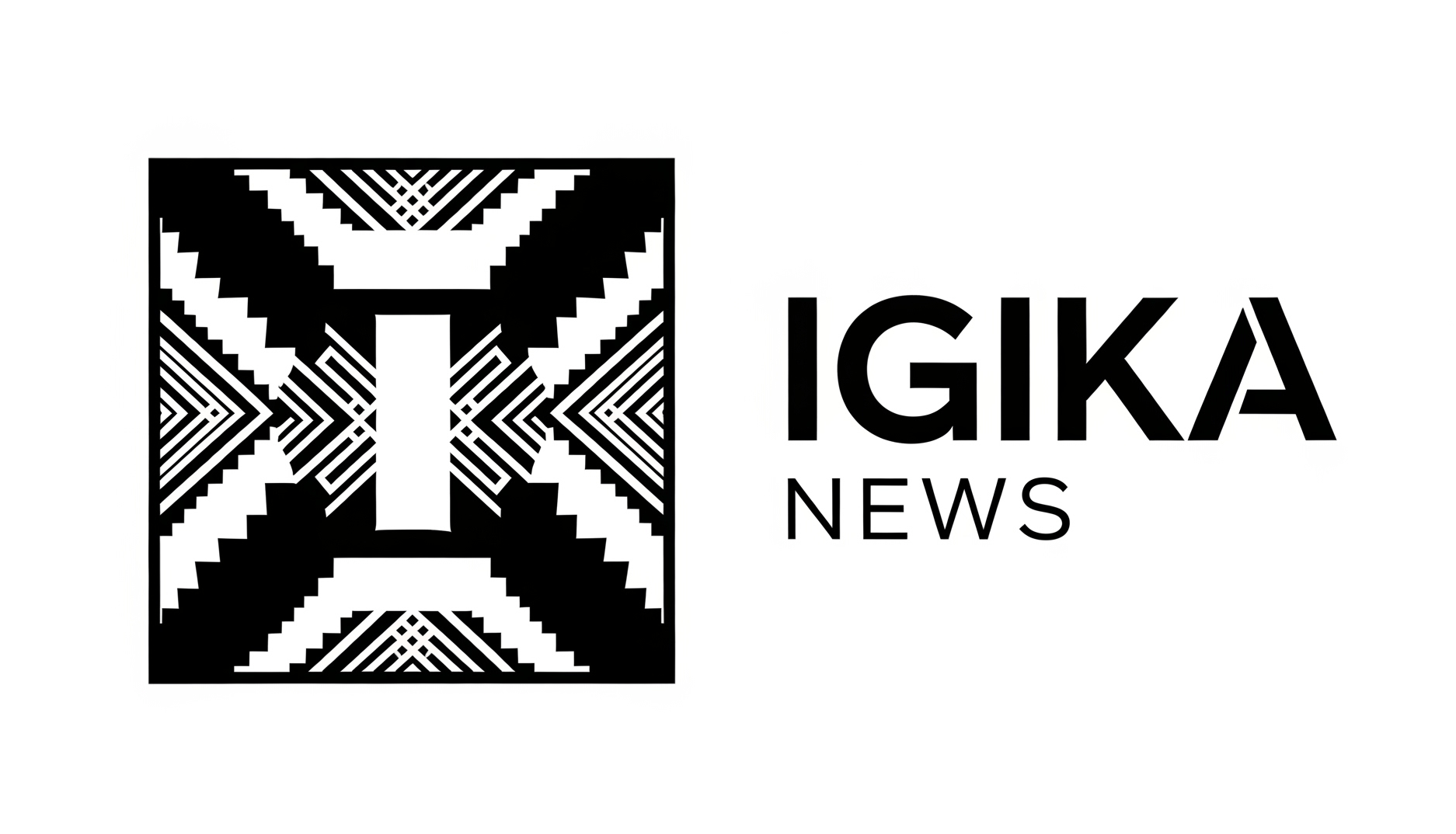The healthcare field is going through a huge change right now. The world is now a dynamic and complicated place because of a number of things, such as an aging population, rapid technological progress, and changing rules and regulations. This is a big problem, but it also gives people with the right skills and vision a lot of chances to lead. If you work in healthcare and want to be a leader, or if you want to get into this growing field, you’ve probably heard the buzz about the Master of Healthcare Administration (MHA). But what makes this degree so strong? And why is an online master’s degree in healthcare administration the key to unlocking your full potential for career advancement?
This complete guide will go into great detail about the online MHA, covering not only the “what” and “why,” but also the “how.” We’ll break down the curriculum, explain the possible career paths, and give you useful, actionable advice to help you succeed. By the end of this post, you’ll know exactly how an online MHA can be the best thing you can do for your career.
The Healthcare Landscape in the 21st Century: A Call for Leadership
Before we can understand how valuable an MHA is, we need to know what the modern healthcare system is like. The industry is growing at an amazing rate. The Bureau of Labor Statistics (BLS) says that the healthcare industry will add about 1.8 million jobs every year from 2022 to 2032. This growth isn’t just in clinical jobs; it’s also in the leadership and administrative roles that are necessary for healthcare organizations to run smoothly and efficiently.
This fast growth comes with a lot of problems. Healthcare providers are having trouble with:
The Rise of Value-Based Care: A change from the old fee-for-service model to one that rewards providers for giving good care and getting good results for patients.
Technological Disruption: The use of electronic health records (EHRs), telemedicine, artificial intelligence (AI) in diagnostics, and data analytics is changing how patients are cared for, but it also needs smart leadership to make sure that the data is safe and that the technology is used properly.
An Aging Population: The “silver tsunami” of baby boomers is putting more pressure on healthcare services, especially for managing chronic diseases and providing long-term care.
Changing Rules: The healthcare industry is one of the most regulated fields, so leaders need to keep up with new rules and regulations.
In this situation, the need for leaders who are skilled and have a vision has never been greater. Healthcare organizations are in dire need of people who can not only run the day-to-day operations but also think strategically, drive innovation, and lead teams through change. This is exactly where the MHA comes in.
What is a Master’s in Healthcare Administration (MHA)?
The Master of Healthcare Administration (MHA) is a graduate-level degree that gets students ready to be leaders in the healthcare field. An MHA is different from a clinical degree because it focuses on the business and management side of healthcare rather than patient care. The curriculum is meant to give students a complete picture of the healthcare system and help them develop the skills they need to be leaders in this complicated field.
Most MHA programs cover a lot of important topics, even though each one is a little different. These topics include:
Healthcare Finance and Economics: Learning the basics of budgeting, financial analysis, and healthcare economics to make sure an organization can stay in business.
Healthcare Policy and Law: Knowing the complicated network of rules, laws, and moral issues that affect the healthcare industry.
Operations Management: Learning how to make processes work better, make things run more smoothly, and give better care.
Strategic Planning and Marketing: Learning how to make a plan for the future, deal with competition, and clearly explain the value of a healthcare organization.
Leadership and Organizational Behavior: Developing the “soft skills” that are necessary for managing teams, creating a good work environment, and making changes happen.
Data Analytics and Health Informatics: Learning how to use data to make smart choices, help patients get better, and spark new ideas.
An MHA is not the same as an MBA with a focus on healthcare. Both degrees are useful, but an MHA is specifically designed to help people in the healthcare field deal with the problems and changes that come with it. Healthcare professionals came up with the curriculum for future healthcare leaders, which makes the education more focused and useful.
The Power of “Online”: Why an Online Master’s Degree Will Change Your Life
Now that we know how valuable an MHA is, let’s talk about how the online format can change the game. In the past, getting a master’s degree often meant putting your career on hold, moving, and spending a lot of money. But that’s not the case anymore, thanks to the rise of high-quality online programs. An online master’s degree in healthcare administration gives you a level of flexibility and access that was once impossible.
The modern professional has never had so much freedom
The fact that an online MHA is so flexible is one of its best features. Most online programs are made for people who work, and they offer asynchronous learning models that let you do your schoolwork when it’s convenient for you. This means you can keep working full-time, get valuable experience on the job, and put what you’re learning to use right away in the real world.
This “earn while you learn” model is a great way to help you move up in your career. You can have both your job and your education. You don’t have to choose. This also means that your resume won’t have a gap, which can be a big plus when you want to get a new job or a promotion.
Geographic Freedom and Accessibility
An online MHA makes it possible for people to get an education no matter where they live. You can now choose from more programs than just the ones near you. You can get into a top-ranked program at a well-known university on the other side of the country or even the world without having to move your whole life. This gives you a lot of options because you can choose any program that fits your career goals, no matter where it is.
Return on Investment and Cost-Effectiveness
Let’s get to the point. An online MHA is usually cheaper than one that is offered on campus. You’ll save money on food, lodging, and, most importantly, getting to work and parking. A lot of online programs also charge the same amount of money for all students, no matter where they live.
But the real worth is in the return on investment (ROI). The BLS says that the median yearly pay for managers of medical and health services was $110,680 in May 2023. With an MHA, you’ll be in a good position to get a salary at the higher end of this range, and there is a lot of room for growth. The money you spend on your education will pay off for a long time.
A Digital Age Curriculum
Don’t think that an online degree is just a less rigorous version of an on-campus degree. Today’s online MHA programs are meant to be interesting, interactive, and useful in the digital age. You’ll learn from the same experienced teachers as students who live on campus, and you’ll have access to the latest learning tools, such as
- Virtual classrooms and interactive discussion boards that help students work together and make connections with other students from around the world.
- Advanced simulation tools that let you practice making decisions without any risk.
- A lot of digital resources, like online libraries, academic journals, and multimedia content.
An online program is a great way to prepare for a career in modern healthcare, where technology is becoming more and more important.
The main point is how an MHA can help you move up in your career.
Now, the million-dollar question: how does an online MHA really help you move up in your career? The answer is the degree’s strong mix of knowledge, skills, and chances.
Opening Up Leadership and Executive Positions
Getting an MHA is your way into the C-suite. The degree will help you get ready for many different leadership and executive jobs in healthcare settings, such as
- **Hospitals and Health Systems:
- Chief Executive Officer (CEO)
- Chief Operating Officer (COO)
- Chief of Staff at a Hospital
- Director of the Department (for example, Director of Operations or Director of Nursing)
- Clinics and Practices for Doctors:
- Administrator of Practice
- Manager of Clinical Care
- Long-Term Care Facilities:
- Administrator of a nursing home
- Manager of Assisted Living
- Companies that sell health insurance:
- Analyst for healthcare
- Advisor on Policy
- Companies that make drugs and biotech:
- Manager of the project
- Consultant for healthcare
- Government and Public Health Organizations:
- Director of Public Health
- Analyst of Health Policy
There are many jobs that an MHA can help you get, and this is just a small sample. The degree gives you a wide range of skills that are very useful in all parts of the healthcare system.
Better job security and the chance to make more money
As was said before, the monetary benefits of an MHA are big. The median salary for medical and health services managers is six figures, but that’s just the beginning. If you have experience and a history of success, you can make a lot of money, even in the high six figures.
But it’s not just about the cash. An MHA also gives you a lot of job security. The healthcare industry is not only getting bigger, but it is also pretty stable during bad times. There will always be a need for skilled and experienced leaders to run the organizations that provide healthcare because people will always need it.
Learning Skills That Will Be Useful in the Future of Healthcare
The MHA curriculum is very focused on teaching the skills that are most needed in today’s healthcare field. These are some of them:
Financial Acumen: the skill of making good financial decisions, managing budgets, and understanding financial data.
Helpful Hint: Make a detailed personal budget to start. To get a better idea of where your money is going, keep track of your income and expenses for a few months. This will give you a chance to learn about the basics of managing money in a real-world setting.
Strategic Thinking: The skill of being able to see the big picture, predict future trends, and make long-term plans for success.
Tip for the real world: Read magazines and newspapers about your field, like Harvard Business Review and Modern Healthcare. Pay attention to the trends that are changing the industry, and think about how you could use what you learn to help your own business.
Leadership and Team Management: The skill to inspire and motivate teams, create an environment where people work together, and lead through change.
Tip for the Real World: Offer to be a leader in a community group or professional group. This will give you a safe place to practice your leadership skills and get feedback from other people.
Data-Driven Decision-Making: The skill of using data and analytics to make smart choices and boost performance.
Tip for the Real World: Get to know basic data analysis tools like Google Sheets or Microsoft Excel. Learn how to make charts, graphs, and pivot tables to see data and spot patterns.
Making a Strong Professional Network
Networking is a key part of getting ahead in your career, and an online MHA program gives you a unique chance to make a strong professional network. You’ll be learning with a wide range of people who come from different backgrounds and have different experiences. You will be able to work together on projects, have interesting conversations, and learn from each other’s points of view.
These connections can be very helpful in your career. Your classmates could end up being your coworkers, mentors, or business partners in the future. Many online programs also have active alumni networks that can help you with your career and give you support.
Useful Advice for Succeeding in Your Online MHA Journey and Beyond
Starting an online MHA is an exciting step, but it also means making a big commitment. Here are some useful tips to help you do well in your program and after it:
Picking the Best Online MHA Program
There are differences between online MHA programs. Do your homework and pick a program that fits your career goals and how you like to learn. Search for:
Accreditation: Make sure that a well-known accrediting body, like the Commission on Accreditation of Healthcare Management Education (CAHME), has approved the program.
Faculty Expertise: Find a program with teachers who are well-respected experts in the field and have a lot of experience working in it.
Curriculum and Specializations: Pick a program with a curriculum that matches your career goals and lets you focus on the areas you want to work in.
Student Support Services: Find a program that has good student support services, such as career counseling, academic advising, and technical help.
How to Do Well as an Online Student
You need to be disciplined and motivated to learn online. Here are some tips to help you do well:
- Make a Study Space Just for You: Look for a quiet, comfortable place where you can study without being disturbed.
- Make a Schedule: Make sure to set aside specific times each week for your schoolwork and stick to your schedule as much as you can.
- Talk to People Online: Don’t just watch. Take part in online discussions, ask questions, and share what you know.
- Stay Organized: Use a planner or digital calendar to keep track of your assignments, due dates, and other important dates.
Using Your MHA to Make the Most of Your Career
Your MHA is a great way to advance your career, but you need to know how to use it. This is how:
Revise Your Resume and LinkedIn Profile: As you finish your classes, make sure to update your resume and LinkedIn profile to show off the new skills and knowledge you’ve gained.
Network, Network, Network: Make the most of every chance to meet and talk to your classmates, teachers, and alumni.
Look for chances to lead: Look for chances to lead at work, in professional groups, or in your community.
Take Charge of Your Career Development: Don’t wait for chances to come to you. Set your career goals and make a plan to reach them.
Learning for life and staying ahead of the game
Your education shouldn’t end with your MHA because the healthcare field is always changing. You need to keep learning throughout your life to stay ahead of the curve. This is how:
Read Industry Publications: Keep up with the latest news and trends in the healthcare field.
Go to Webinars and Conferences: Use these chances to learn from experts and meet other people in your field.
Join Professional Organizations: Groups like the American College of Healthcare Executives (ACHE) have a lot of resources and chances to meet people.
Think about getting a doctorate: if you want to do research, work in academia, or be a top executive, a Doctor of Healthcare Administration (DHA) may be the next logical step.
Final Touches and SEO Optimization
This detailed guide has looked at the many advantages of getting an online master’s degree in healthcare administration to help you move up in your career. An MHA is a great investment in your future because it gives you in-demand skills and opens up high-paying job opportunities. The online format is also flexible and easy to use.
As the healthcare industry grows and changes, the need for leaders who are skilled and have a vision will only grow. An online MHA will give you the information, skills, and self-assurance you need to face the challenges and take advantage of the opportunities in this ever-changing field.
We suggest that you look into online MHA programs and find the one that works best for you if you’re ready to move up in your career. Your future as a leader in healthcare is waiting.
https://igikanews.rw/category/global
Source Links and Backlinks:
- Bureau of Labor Statistics, U.S. Department of Labor, Occupational Outlook Handbook, Medical and Health Services Managers: https://www.bls.gov/ooh/management/medical-and-health-services-managers.htm
- American College of Healthcare Executives (ACHE): https://www.ache.org/
- Commission on Accreditation of Healthcare Management Education (CAHME): https://www.cahme.org/
- Modern Healthcare: https://www.modernhealthcare.com/
- Harvard Business Review: https://hbr.org/




